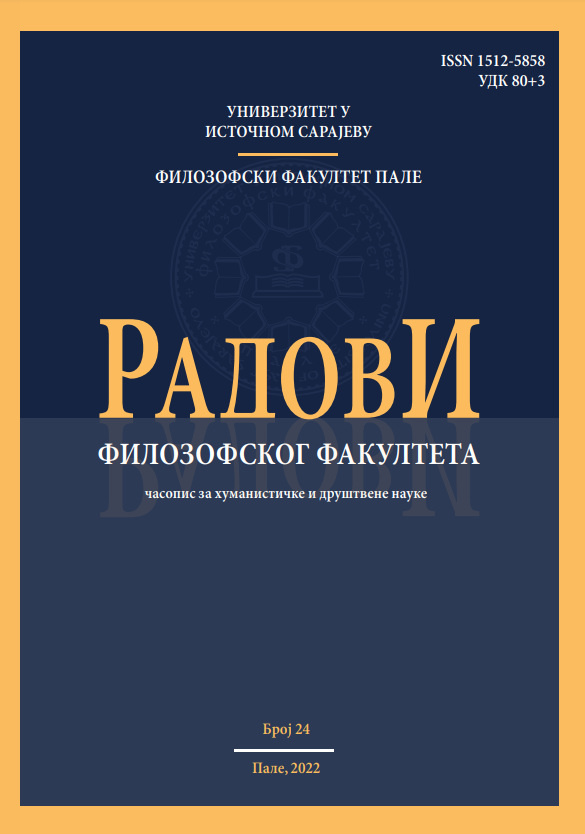ФИЛОСОФИЈА ЖИВОТА МИЛОША Н. ЂУРИЋА
THE PHILOSOPHY OF LIFE OF MILOŠ N. DJURIĆ
Author(s): Miljan B. PopićSubject(s): Philosophy, Ethics / Practical Philosophy
Published by: Универзитет у Источном Сарајеву, Филозофски факултет Пале
Keywords: Miloš N. Djurić; philosophy; life; rationalism; ethics;
Summary/Abstract: Philosophical attitudes and reflections on the philosophy of life of Miloš N. Djurić we presented were based on his paper from 1928: Rationalism in contemporary German philosophy: exposition and criticism, with fragmentary quotations. Miloš N. Djurić at the beginning of the paper presents rationalist teachings and gives a general picture of contemporary philosophy in Europe, especially in Germany. He details the characteristics of neo-Kantian systems: the panlogism of the Marburg School or the critical idealism of Hermann Cohen, then the transcendental-axiological philosophy of the Baden School and the main representative of Wilhelm Windelband, as well as their use of the transcendental method. In the second part of Rationalism, Djurić presents the peculiarities of Edmund Husserl's phenomenology and phenomenological philosophy of culture. He emphasises that there is a great internal similarity between these philosophical systems, and says that they are „modern forms and costumes, modern variants and shades of one of the oldest and most traditional schools of thought, which is Platonism.“ Criticising rationalism and the aforementioned systems, Djurić specifies his philosophical position, which is: „Irrationalism, philosophy of life, philosophy of instincts, heart, feelings, sensations, intuition, philosophy of creative development.“ Irrationalism that strives to unify all the epistemological possibilities that man comes to, and which has its origin in „integral life“ and for which science is only one particular expression of life. The criterion of truth, according to Djurić, is found in the experience of life, not in formal-logical connections, and only through the living whole of the human spirit „all truth is obtained without exception“. He also emphasises that the „absolutisation of man's logical power“ and the absolutisation of logical operations negates man's true origin and leads to a false anthropology. Miloš N. Djurić believes that the West is following an artificial path „from work to whole, from thought to being“, and that the Slavic East is going „the right way: from whole to work, from being to thought“, and that the stars will bring light to the modern intellectual chaos which are „educated in Slavic consciousnesses“. The studies of several authors about Miloš N. Djurić with the aim of a broader overview of the characteristics of his philosophy of life with a fragmentary citation of those few studies. At the end of the paper, two examples of Professor Djurić helped younger colleagues to advance in their academic careers and thus demonstrated his philosophy of life. The task of the philosophy of life witnessed by Djurić remained unsolved, it is necessary for us today to return the ideas and values we find in Djurić philosophy of life to research and spiritual interest, and this paper is also directed in that direction.
Journal: Радови Филозофског факултета (часопис за хуманистичке и друштвене науке)
- Issue Year: 2022
- Issue No: 24
- Page Range: 145-165
- Page Count: 21
- Language: Serbian

